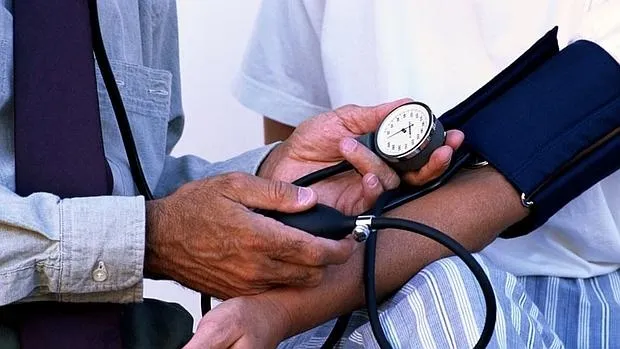In general, people with diabetes have a higher blood pressure than the population without the disease.The problem is that, when high, blood pressure increases the risk of cardiovascular disease development very significantly.
Consequently, the recommendation is that diabetes patients take antihypertensive treatments to, thus, achieve lower blood pressure levels than those required in the general population.But as a study carried out by researchers from the University of Umeå (Sweden), this intensification of hypertensive treatment can be very counterproductive, at least in the case of type 2 diabetes.
Specifically, the new study, published in the "BMJ" magazine, shows that antihypertensive treatments can increase the risk of mortality due to cardiovascular causes in diabetics with systolic blood pressure (PAS) of less than 140 millimeters of mercury (mmhg).
As Mattias Bruström, director of the research, explains, “our results show that the intense decrease in blood pressure with the use of antihypertensive drugs can be very harmful to people with diabetes and a country of less than 140 mmHg.But in the same way, it should be taken into account that the antihypertensive treatment is crucial for the majority of diabetics whose blood pressure is greater than 140 mmHg ».
type 2
The objective of the new work was to evaluate the effects of antihypertensive drugs on people with diabetes.And for this, the authors reviewed the results of all studies that, in this regard, have already been published so far in scientific journals.
The new analysis of the published data - or ‘meta -analysis’ - showed that the effects of antihypertensive therapy depend on the blood pressure levels that the patient has before starting the treatment.Thus, and in the event that the pas was 140 mmHg, the taking of antihypertensive drugs is associated with a decrease in the risk of myocardial infarction, stroke, heart failure and general mortality.
On the contrary, and in the event that the patient has a PAS of less than 140 mmHg, the antihypertensive treatment increases the risk of death due to cardiovascular causes.
When it comes to arterial hypertension, infringement is a problem greater than the Brunström overcrafts
And this counterproductive effect is applicable to all patients with diabetes?No. As the authors indicate, “our results have been obtained almost exclusively from the data of patients with type 2 diabetes and previous hypertensive treatment.Therefore, conclusions cannot be drawn from what happens in the case of type 1 diabetes or diabetic patients with normal pressure levels ».
better to go to fall short
But in this context, Mattias Bruström recalls, "it should be taken into account that, when it comes to arterial hypertension, infromotement is a major problem than over -treatment."
Be that as it may, the study director concludes, «most clinical practice guides must be rewritten in the coming years.And it is that the recommendation to achieve lower blood pressure objectives, and sometimes as low as 130 mmHg, for people with diabetes is controversial.We hope that our study, which shows the potential risks of intensive antihypertensive treatment, be taken into account in future guides ».


